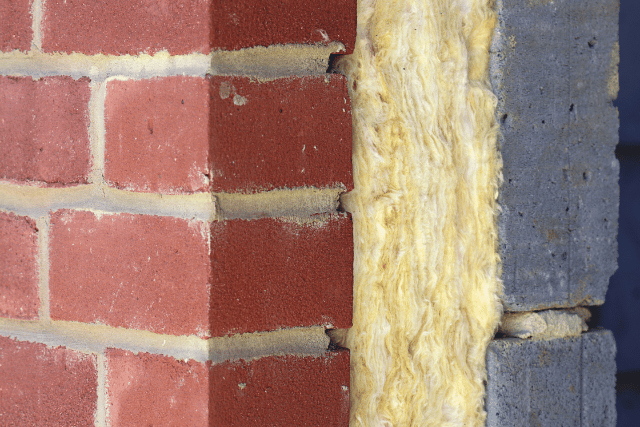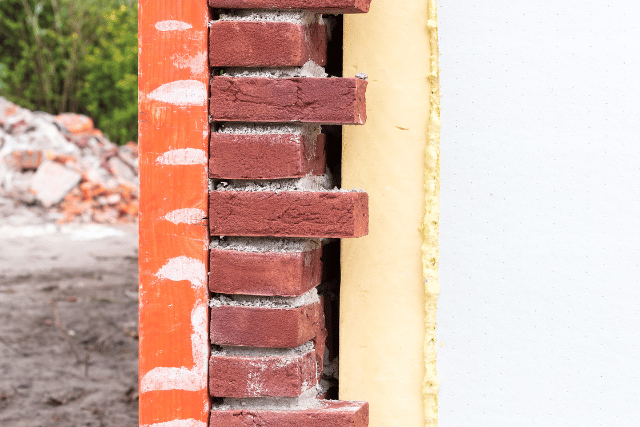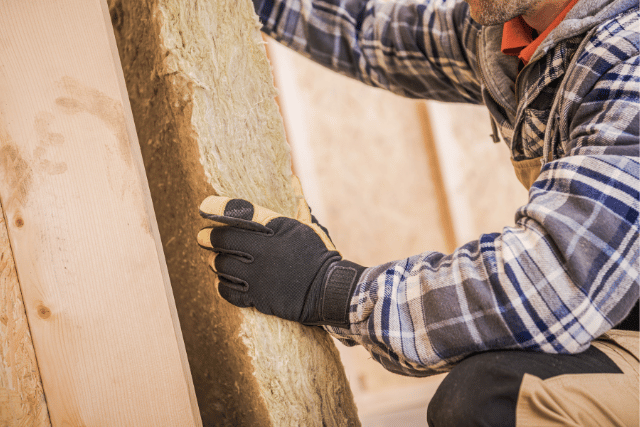What Is Cavity Wall Insulation?
Cavity wall insulation is a method used to insulate the walls of a building by filling the gap or “cavity” between the inner and outer walls with an insulating material. This type of insulation helps to improve the energy efficiency of buildings reducing the amount of heat that is lost through the walls.
On average, cavity wall insulation can reduce the amount of heat lost through the walls of a building by up to 30%. This reduction in heat loss is going to result in significantly lower energy bills, and improved energy efficiency.

How Much Is Cavity Wall Insulation?
The cost of cavity wall insulation typically ranges from £20 to £30 per square meter of wall. This means that the overall cost of insulation will really depend on the size of the building that is being insulated.
However, there is another way. There are cavity wall insulation grants available through the ECO4 scheme that are completely free! If you meet the criteria to qualify for a grant, and your building is able to have the insulation installed, you could receive it for completely free.
Find out if you are eligible for a free, government-backed cavity wall insulation grant by filling out our quick application form!
Does Cavity Wall Insulation Cause Damp?
No, cavity wall insulation does not cause damp. In fact, it can be used as a way to prevent dampness in a building.
However, it is important to conduct a thorough building inspection to identify and address any dampness issues before installing insulation. If a building already has problems with dampness, then cavity wall insulation can exacerbate those issues.
Dampness issues like moisture trapped within the wall cavity prior to installation can result in moisture becoming trapped. This is why it’s important that a fully qualified and experienced professional is responsible for the installation of your insulation.
At Energy Efficient You, we have over a decade of experience improving the energy efficiency of people’s homes through the installation of cavity wall insulation.

How Does Cavity Wall Insulation Work?
Cavity wall insulation works by creating a thermal barrier within the cavity between the inner and outer walls of a building. The insulation material helps to reduce heat transfer and improves the energy efficiency of the building.
Each building and environment will require different insulation for cavity wall insulation, as what might be suited for one, may not be for another. There are lots of different types of materials that can be used for insulation:
Mineral wool – Mineral wool provides good thermal insulation, soundproofing and is resistant to both fire and moisture.
Expanded polystyrene – These small spherical beads are injected into the wall cavity to fill the space and provide insulation. They are lightweight, affordable, and have good thermal insulation properties. By combining them with a binding agent during the installation process, they form a solid layer of insulation.
Polyurethane foam – This foam is sprayed into the cavity of the wall, which then expands and solidifies. It provides excellent thermal insulation and helps to seal gaps preventing air infiltration.
Phenolic Foam – A rigid foam material made from phenol-formaldehyde resin. It has excellent thermal insulation properties and low thermal conductivity. Phenolic foam is resistant to moisture and fire, making it suitable for cavity wall insulation.
How Much Does Cavity Wall Insulation Save?
You can save both money and energy with cavity wall insulation. Heat loss is reduced by up to 30% through insulation, meaning that heat that would normally be lost through the walls of a building is kept inside. This in turn means you won’t need to use as much energy towards your heating as less of it will be lost.
Not only will insulation help you to save on your energy consumption, but it will also save you money on your energy bills. The energy savings trust estimates that cavity wall insulation will save homeowners up to £260 per year on heating costs for an average-sized property.

How Long Does Cavity Wall Insulation Last?
Cavity wall insulation will last for the lifespan of the building it is installed in. If it has been installed correctly, using proper insulation materials, and maintained properly then it should never need to be changed.
This means that if you have insulation installed correctly by an experienced installation team, then you will never need to change it!
Apply For A Cavity Wall Insulation Grant
Apply for a cavity wall insulation grant today by filling out our quick eligibility form below. Once you have filled out the form, a member of our team will be in touch with you to discuss the next steps.

